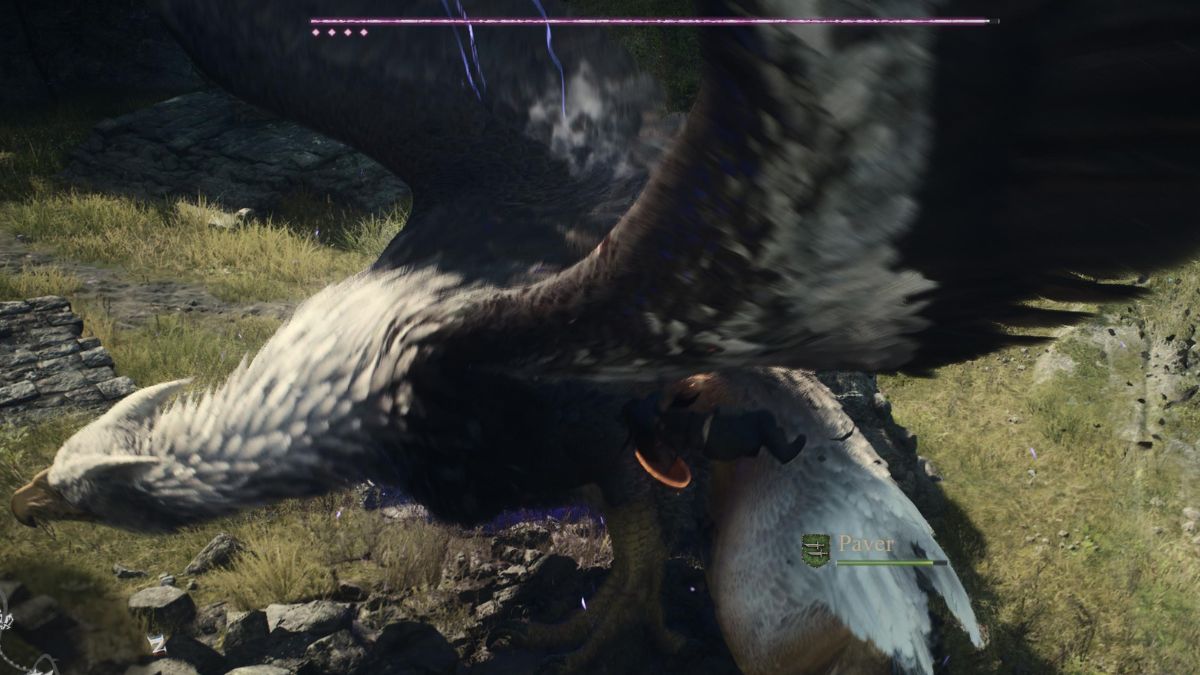Ever since I first started playing Dragon’s Dogma 2, the gameplay loop of picking up quests, exploring the world to find a solution, and then returning after hours of being sidetracked has felt intense but not too dissimilar to a normal day as a parent.
Anyone who has played Dragon’s Dogma 2 knows that there’s a vague gameplay loop you follow. First, you enter a location and pick up a few quests. Next, you head out into the world to complete said quests and return to the NPC who handed them out when you’re done. It’s standard fare for any open-world RPG, but this game has a way of derailing your plans that’s never intentional; it’s just part of life, but it’s also exactly how every day goes for parents.
An unexpected adventure
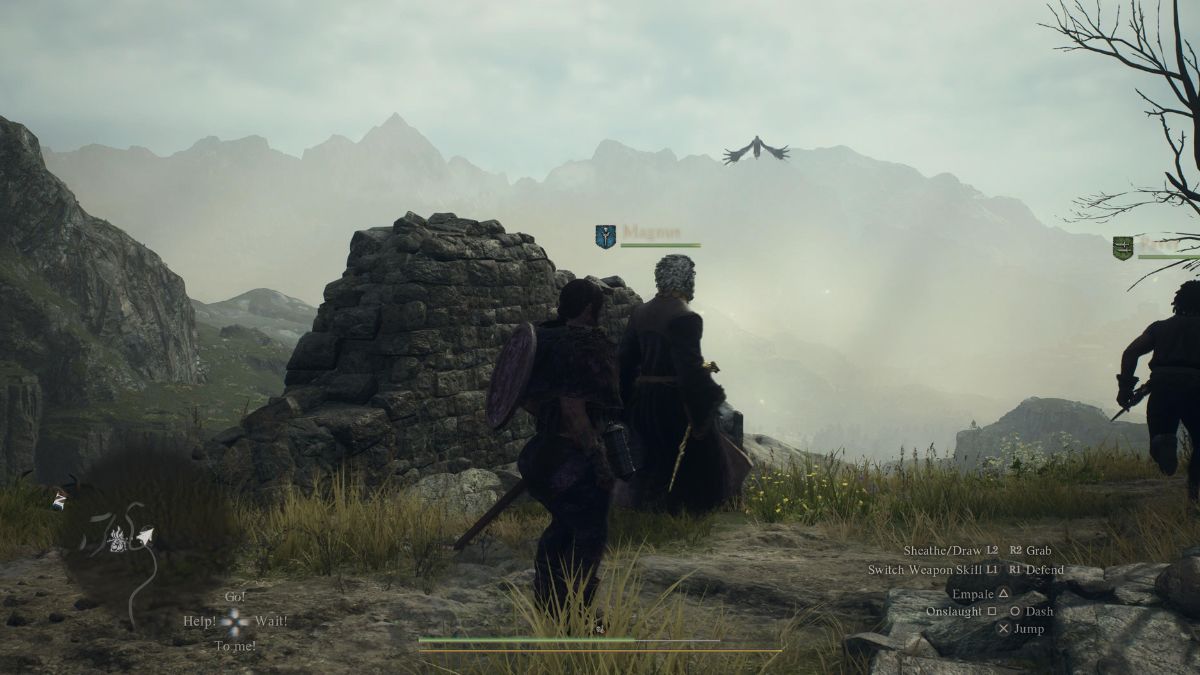
Dragon’s Dogma 2 hands out quests like your child on a Saturday morning. You, as the parent, have at least a vague plan for the day, and in-game, this correlates to the main quest or a specific goal you tell yourself you’re going to achieve.
However, no sooner do you enter a location than three NPCs walk up to you and interrupt your journey to tell you about points of interest nearby like the Cenotaph or a lost local boy. Suddenly, your plans are derailed because all of this sounds much more interesting than hunting down the dragon that stole your heart.
What I’ve noticed is that regardless of whether you’re playing a game or just trying to get out the door and get your kids to their planned or unplanned outing, you quickly adapt to take it in your stride. In Dragon’s Dogma 2, you just know you may not get to the main quest in this session, but you’ll have a fun adventure anyway.
Pawns and children need constant supervision
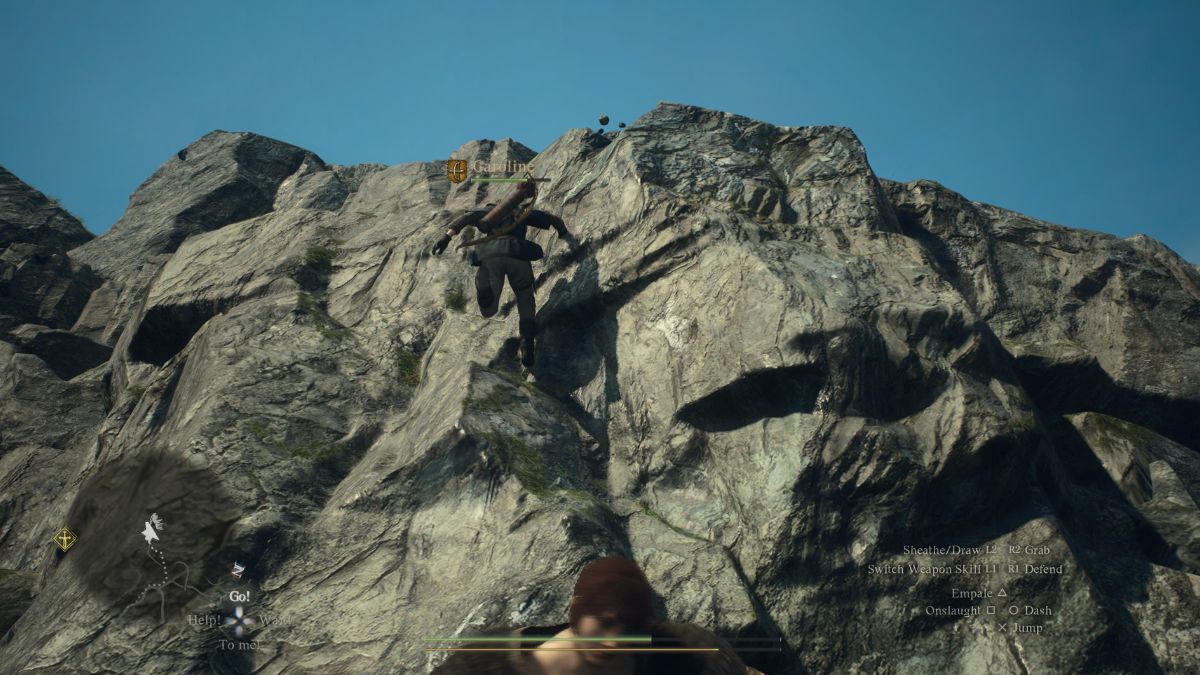
My Pawns chat with me constantly, mostly about things they can see, and it makes me laugh out loud because my daughter does the same. Whenever a Pawn finds a colloquial way to tell me there’s a ladder nearby I should use, I can’t help but think of my daughter doing the same because she also questions how we’re going to use it, where it goes and how you should never leave a ladder unclimbed.
Just like children, Pawns also need to have their hands held almost all the time when it comes to traversing the environment. You can carefully descend a long staircase down the side of a city wall or slowly drop down the rocks on a cliff, only for your Pawns to launch themselves from an insane height onto the ground. Parents are constantly on watch for that same behavior because, at some point in their lives, all children seem to think that same logic will work.
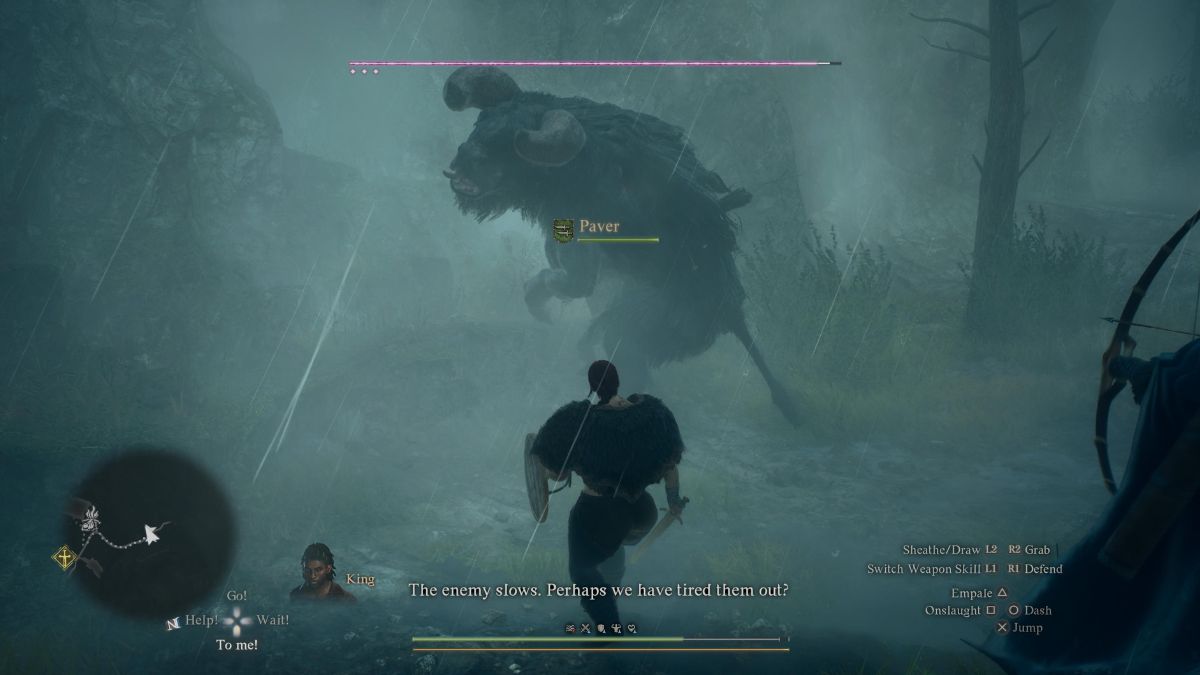
Monsters are the main factor that ends or pauses most adventures in Dragon’s Dogma 2. I tend to skirt around monsters if I’m just trying to complete a quest, but my Pawns drag everything they can into a fight. More than once, I’ve had a Pawn tell me they’ve found something interesting, only for that thing to be an Ogre.
Children do this, too, though not to the same degree. I love this because they’re so excited to show me this amazing discovery they’ve made, and of course, I say, “Wow! That’s amazing!” before asking where it came from and discreetly disposing of said item as they show me.
You can’t really do this with Pawns because their discoveries are a fair bit more dangerous. The worst my Pawns have done is drag me through a cave, in which I heard heavy breathing but couldn’t see any monsters, only to get rushed and headbutted by a Minotaur outside of it before a Centaur appeared, and my other Pawns pulled that in for some sort of classic battle reenactment from Greek mythology.
It’s in this way Pawns redirect your exploration in Dragon’s Dogma 2, more than anything else, that I think all parents will be familiar with. You might suddenly get a request to see a cow that can turn into a long drive that ends up at a closed farm with an adventure play park nearby, and out of nowhere, you’re having the most special but completely unexpected day. It’s amazing, and I think it’s a big part of what makes the game and being a parent so incredible.
The danger nap
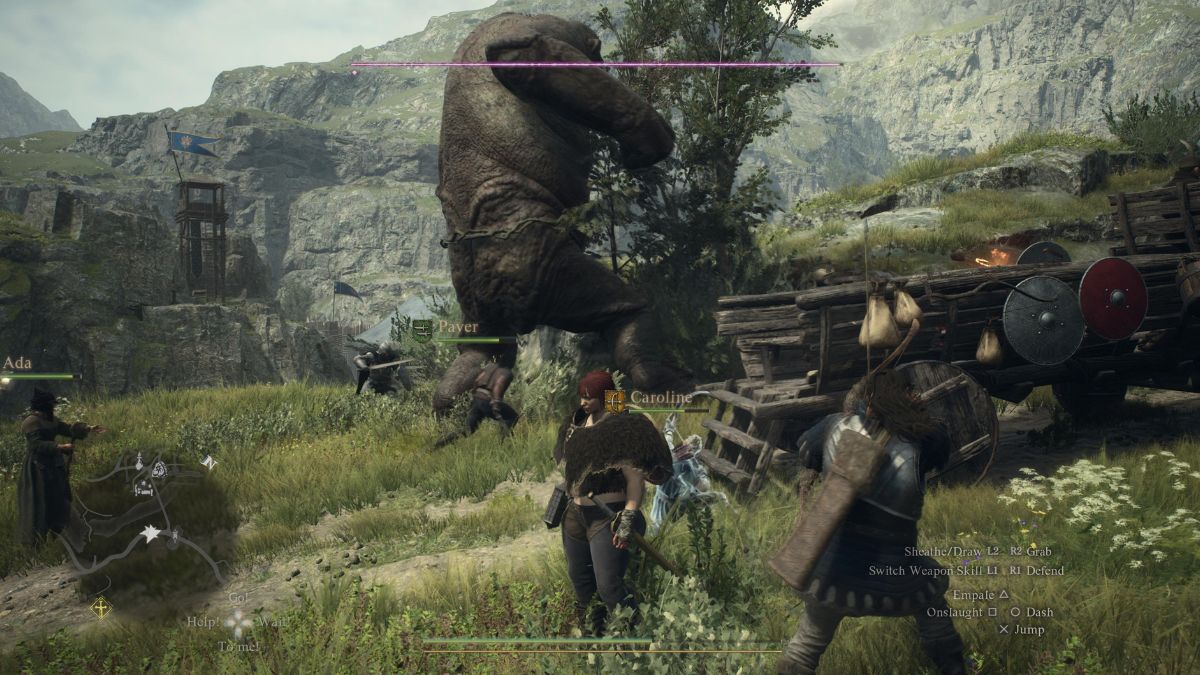
Dragon’s Dogma 2 mirrors the day-to-day life of a parent in one more way: napping. Most children nap, though there are those who don’t, and my heart goes out to those parents because you are the real heroes. But children also take up a significant amount of brainpower and physical energy through play, answering questions, generally helping them learn about the world, and just trying to work out what they’re doing before it’s too late. Every parent is tired, and we all love a quick power nap when putting the youngest down or crashing on the sofa for 10 minutes.
The game gives you this ability, too. Adventuring is tiring, so you can hop on an oxcart, close your eyes, and be taken from one settlement to another with very little excitement. Except in both cases, that nap is the most dangerous thing you could do. It feels like as soon as your eyelids shut, a monster appears and attacks the oxcart, or your child leaps, somehow, from the top corner of a room as if levitating and your nap turns into an ambush.
These encounters are some of the best in Dragon’s Dogma 2. They make the world feel alive, as if humans are intruding on the wild nature around them because these monsters are so prevalent. I very quickly learned only to sneak my naps in while putting my youngest to bed because when I close my eyes on the sofa, as I did this morning, there’s always a monster attack.
